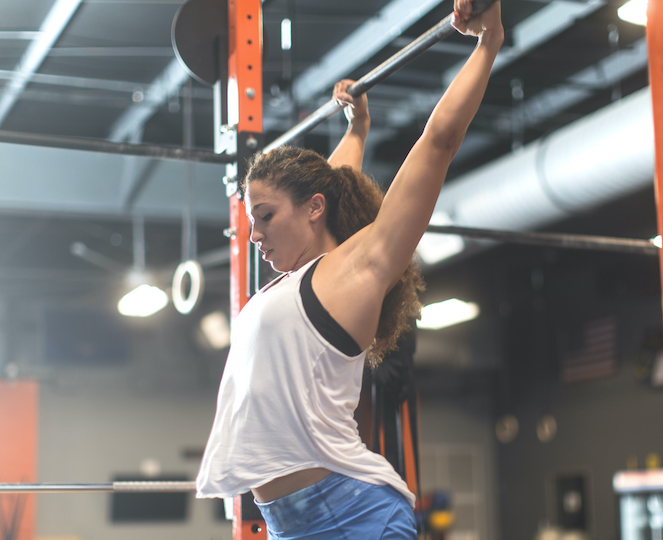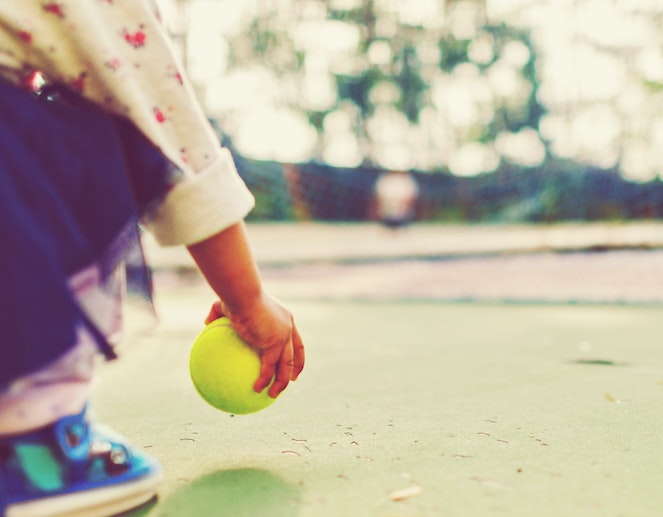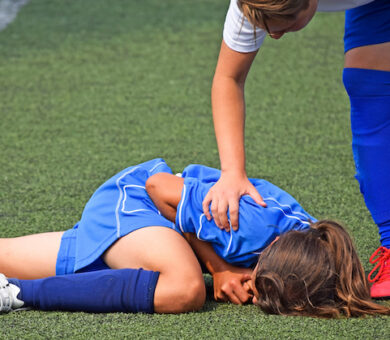Pros and Cons of Being a Multisport Athlete
Guide: Pros and Cons of Multisport Athlete
Many studies about athletes have shown that participating in multiple sports is either good or bad. There are good and logical facts for both sides of the argument. Many athletes and parents wonder if being a multisport athlete will be helpful or harmful to the athlete. Here are some of the pros and cons, offering opinions on both sides.
Pros
Balancing Muscle Groups
As a young athlete who is still growing and maturing, cross-training is good for the body. Using different muscle groups for different activities is strengthening the body as a whole. Strengthening and using multiple muscles are necessary to improve joint stability and muscle balance.
According to the Journal of Athletic Training, there are specific exercises that potentially facilitate muscle balance in preventing injury. Check out some exercises.
Changing sports is proven to work, develop and strengthen many different muscle groups by using different muscle systems in different areas of the body. Some sports such as running are a heavier load on the joints as opposed to swimming, for example. Changing those loads give the different muscles a break, while working others.
Injury Prevention
As multiple muscle systems gain strength, the body becomes stronger. When you change sports, your body uses your muscles differently. For example, in volleyball, there are quick lateral and vertical movements but not a lot of distance is required. In basketball, there are still quick spurts required, but there is also much more running. In swimming, the body is used in still another way, and there is less wear and tear on the joints.
With continued use of all the different muscle groups and joints, there is a greater possibility of avoiding injury. And if there is an injury, there is an increased likelihood of a speedier recovery.
Avoiding Burnout
Playing multiple sports is one way to avoid burnout, especially in a young athlete who may have the potential to play in college. Changing sports gives the body and mind a break. Changing sports is like changing scenery. It keeps you fresh.
I have seen high school athletes get to college and then stop playing sports altogether because it becomes too much, or they acquire an overuse injury that occurs during their freshman year of college. Some of those athletes are plagued by the same freshman injury throughout their entire career if they choose to keep playing.
Building Overall Fitness
Beyond high school and college, there is life after sports. es, some will go on to play at the professional level, but, even after that, life goes on. Overall fitness is a way of life. If you start young with trying new and different sports, and then you specialize when you play in college, the chance of you cross-training again when you are older is higher.
Everyone likes to be fit, especially a former athlete.

Cons
Time
Being a multisport athlete takes time away from your main sport. If you are an athlete who is trying to improve in one sport, especially if you are late in your high school career, you may want to zero in on the sport you want to play in college. If you have found the sport you love, and you really want to improve in that sport, then specializing might be right for you.
Injuries in the Backup Sports
Playing sports is always a risk, but an unintended injury in a sport other than your main one could interfere with your main sport. In other words, you could get injured in one sport and not be able to play your dominant sport because of it.
Getting Really Good
It’s hard to improve if you aren’t working hard at your skill. Usually, skill development happens in the off-season. If you are always playing another sport, there is no off-season and, therefore, probably a slower rate of improvement in the sport you are trying to be good at. There is also time to get a personal trainer if you only have one sport to worry about.
Fewer Distractions
When you only have one sport to worry about, there are fewer distractions, allowing you to focus on whatever it is you need to do for that sport. If you need mental training, you can focus on that. If you need more conditioning for your sport, you can focus on that. If you need better nutrition, you can focus on that. All you have to worry about is your sport.

There Are Options
The good news is that you have options and can make either work.
Knowing what is right for you, the athlete, is what really matters. There have been successful college athletes who have either played multiple high school sports or those who specialized at an early age. The best route is the one that serves your needs and feels right to you.
You never know what you are going to be good at or what you’re going to like. You may pick up a sport, at a very young age, that you absolutely fall in love with for the rest of your life. Or you may find your favorite sport when you get to high school.
Three Short Stories:
There was a young athlete who thought she was going to play basketball or soccer in college. Unexpected events in her life brought her to try running when she was a sophomore in high school. She fell in love with running and chose cross-country and track as her collegiate sport. She would have never known this “love” had she not tried the sport. You never know what they are going to be good at or what they are going to like. They may pick up a sport, at a very young age, that they fall in love with for the rest of their lives. Or they may find their favorite sport when they get to high school.
There was another young athlete whose father, after every game in junior high and summer club practices, took her to the gym for extra workouts with him. She loved the extra time and became a very good basketball player. She was beginning to get a lot of attention from college coaches. When she became a sophomore in high school, she began to get injured a lot. Her junior year was cut short and she lost some time as a high school senior. College coaches knew she was a good player but were fearful she would not make it through all the pounding in college basketball. Her college attention dropped off quite a bit during her junior summer. She ended up not playing college sports at all because of injury.
The last story is about a tennis player who, at a very young age, fell in love with tennis. Her mom had played, so she was around tennis a lot. Her mom got a personal trainer for her at a young age, but her mom also shut her down to take breaks away from training. From 7th grade through high school, this tennis player trained and competed in tournaments. She became very good and received a college tennis scholarship to play Division I tennis. She enjoyed a healthy college career.

At the end of the day, it is up to individual circumstances for the athlete. However, in general, at a very early age, children should try new sports and many different activities. Variety is good and you never know when something is going to stick.
I would advise playing multiple sports for as long as you can and taking breaks from sports to allow the body to recover.
No matter what your decision is, listen to your body and give it the breaks it deserves so it can carry you through your exciting, but challenging, college career and beyond.


